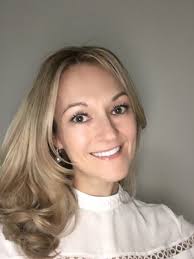Eric Topol
See the following -
5 DIY Hardware Platforms for Physiological Computing
 Physiological computing focuses on the use of biosignals for the development of interactive software and hardware systems capable of sensing, processing, reacting, and interfacing the digital and analog worlds. However, biosignals have specific requirements for which typical physical computing platforms are not particularly tuned. Until recently, many projects ended up hindered by high costs and limited access to suitable hardware materials. That scenario is different today, partially thanks to the following 5 DIY hardware platforms...
Physiological computing focuses on the use of biosignals for the development of interactive software and hardware systems capable of sensing, processing, reacting, and interfacing the digital and analog worlds. However, biosignals have specific requirements for which typical physical computing platforms are not particularly tuned. Until recently, many projects ended up hindered by high costs and limited access to suitable hardware materials. That scenario is different today, partially thanks to the following 5 DIY hardware platforms...
- Login to post comments
AMA CEO Calls Digital Products Modern-Day ‘Snake Oil’
When it comes to electronic health record technology, the American Medical Association has been an outspoken critic about what it perceives as the shortcomings of EHRs, voicing the widespread dissatisfaction of the doctors who use the systems. However, the nation’s largest physician group is now taking aim at new and emerging health IT technologies—such as mobile healthcare apps—that it believes are leading to practice disruption...
- Login to post comments
Apple Watch Leaves Patients Connected with Nowhere To Go
 The highly anticipated unveiling of the Apple Watch Series 4 caused a news and social media sensation. Apple coined the iconic timepiece as the "guardian of your health", with health tracking functionalities such as the ability to detect atrial fibrillation (AFib) by a self-performed electrocardiogram (ECG). But from patients' and carepartners' perspectives, there is a long road to a universally accessible, seamlessly implemented, mass-adoption, and meaningful use for this wearable technology...Unfortunately, the vast majority of concerns in the public domain haven't emphasized the risks to health due to poor implementation, integration, and adoption strategies of digital tools and wearables.
The highly anticipated unveiling of the Apple Watch Series 4 caused a news and social media sensation. Apple coined the iconic timepiece as the "guardian of your health", with health tracking functionalities such as the ability to detect atrial fibrillation (AFib) by a self-performed electrocardiogram (ECG). But from patients' and carepartners' perspectives, there is a long road to a universally accessible, seamlessly implemented, mass-adoption, and meaningful use for this wearable technology...Unfortunately, the vast majority of concerns in the public domain haven't emphasized the risks to health due to poor implementation, integration, and adoption strategies of digital tools and wearables.
- Login to post comments
Bringing Open-Source IT To Personalized Health
It's widely believed that engaged patients have better outcomes, but the healthcare industry has been grappling with how to make that happen. Joanne Rohde, CEO and founder of mobile software developer Axial Exchange, believes the solution lies in bringing low-cost technology to patients at a personal level so they can track their health — and integrating that information with the systems physician use to run their practices...
- Login to post comments
Cardiologist Eric Topol on Why We Need to Map the Human Body and “Go Deep” with Big Data
 This year’s Big Data in Biomedicine conference included a passionate talk from cardiologist Eric Topol, MD, of The Scripps Research Institute. Topol, who has been named one of the most influential physician leaders in the United States, described in gripping detail what’s wrong with medical care today and why we need to move forward to the kind of individualized medicine that can make for healthier individuals and healthier populations...
This year’s Big Data in Biomedicine conference included a passionate talk from cardiologist Eric Topol, MD, of The Scripps Research Institute. Topol, who has been named one of the most influential physician leaders in the United States, described in gripping detail what’s wrong with medical care today and why we need to move forward to the kind of individualized medicine that can make for healthier individuals and healthier populations...
- Login to post comments
Clinton & Topol Preach the Importance of Evolution in Healthcare
For all of their differences, former U.S. President Bill Clinton and cardiologist Eric Topol--the West Endowed Chair of Innovative Medicine at The Scripps Research Institute in La Jolla, Calif.--delivered a similar message in their respective keynote addresses this week at the Healthcare Information and Management Systems Society's annual conference... Read More »
Crossing The Digital Health Chasm Between Consumers And Providers – Talking With Dr. Eric Topol
More than twice as many patients than physicians are embracing consumers’ use of new digital technologies to self-diagnose medical conditions on their own. On the other hand, 91% of doctors are concerned about giving patients access to their detailed electronic health records, anticipating patients will feel anxious about the results; only 34% of consumers are concerned about anxiety-due-to-EHR-exposure...
- Login to post comments
Data Crisis: Who Owns Your Medical Records?
 We’ve all encountered issues with our medical records. Whether getting a copy for a second opinion, finding major mistakes, or changing health care providers, our access to this important set of data has been fraught with difficulties. But that’s in the past tense—it’s getting worse. Sadly, your medical records are the property of hospitals, doctors, and health systems. Except in New Hampshire, where ownership rights are assigned to the patient, no other states recognize the individual’s right of control and ownership of their medical data...
We’ve all encountered issues with our medical records. Whether getting a copy for a second opinion, finding major mistakes, or changing health care providers, our access to this important set of data has been fraught with difficulties. But that’s in the past tense—it’s getting worse. Sadly, your medical records are the property of hospitals, doctors, and health systems. Except in New Hampshire, where ownership rights are assigned to the patient, no other states recognize the individual’s right of control and ownership of their medical data...
- Login to post comments
Dr. Eric Topol Joins The Wide Open Road Of mHealth As AT&T As Chief Medical Advisor
Last fall Verizon announced FDA approval for their Converged Health Management System, a remote patient monitoring platform to connect doctors with patient vitals using HIPPA level security. Now AT&T is upping the ante, announcing the appointment of Eric Topol, MD as Chief Medical Advisor, in charge of design, development and delivery of the company’s healthcare IT solutions. Read More »
- Login to post comments
Eric Topol: Docs Must Adopt Health IT More Quickly
The current shift in the healthcare industry to digitize care unquestionably is the biggest shakeup in the history of medicine, according to cardiologist Eric Topol [...]. Still, Topol (right) says, the industry has a ways to go before it will be able to shake its "slow moving" reputation; the public, he adds, will be key to driving that change. Read More »
- Login to post comments
Eric Topol: Medical Technology Revolution Needs Validation To Move Forward
Thanks to advances in remote monitoring, hospital of the future will only provide intensive care, he says Read More »
- Login to post comments
Google Taking Over Health Records Raises Patient Privacy Fears
 Last year, the U.K. government privacy watchdog said an NHS hospital had illegally sent 1.6 million patient records to DeepMind to develop Streams, fanning public fears about data safety. In June, a group of outside experts DeepMind Health appointed to scrutinize its work urged the unit to "entrench" its separation from Alphabet. After the consolidation with Google was announced, Julia Powles, a researcher at New York University School of Law and a critic of DeepMind's work with the NHS, scorched the reversal. "DeepMind said it'd never connect Streams with Google," she wrote. "The whole Streams app is now a Google product! That is an atrocious breach of trust."...
Last year, the U.K. government privacy watchdog said an NHS hospital had illegally sent 1.6 million patient records to DeepMind to develop Streams, fanning public fears about data safety. In June, a group of outside experts DeepMind Health appointed to scrutinize its work urged the unit to "entrench" its separation from Alphabet. After the consolidation with Google was announced, Julia Powles, a researcher at New York University School of Law and a critic of DeepMind's work with the NHS, scorched the reversal. "DeepMind said it'd never connect Streams with Google," she wrote. "The whole Streams app is now a Google product! That is an atrocious breach of trust."...
- Login to post comments
Health Data Should Belong to Patients, Topol Argues
The digital revolution’s merging of medicine with high tech has unleashed massive amounts of data about the most intimate details of our life — what we ate, how far we walked, how fast our heart beat. As a result, what constitutes health data is no longer so easily defined. Neither is how the information is used. With rise of machine learning, those questions are becoming increasingly urgent, especially with the move of high tech companies into the clinical sphere, according to health data transparency advocate Dr. Eric Topol...
- Login to post comments
Healthcare Technology Engineering Firm, Achieve Health, Will Sponsor Health 2.0 Fall Conference To Be Held In Santa Clara, CA
Achieve Health will be an exhibitor & sponsor at the 8th installment of the annual conference which highlights innovations in health and healthcare. The three day event will run from September 21st - 24th, 2014...
- Login to post comments
HIMSS13: A Fork in the Road - How Patients & Payment Are Forcing 'Open' Health IT
This year feels like a fork in the road at HIMSS13, with disruptive forces of patients, digital health, mobility and open standards driving innovation and renewed energy at the annual conference...Without transparency (in health IT and health finance) and data liquidity, bending the cost curve will continue to elude the U.S. health system. At the recently concluded annual Healthcare Information and Management Systems Society conference in New Orleans, 34,696 got to experience a yin and yang vibe that embodies the disruption that the health care IT industry is undergoing. That is, the full-on face-off between developers of health IT that have been long-closed to data liquidity and those vendors innovating on open standards and cloud-based platforms. Read More »